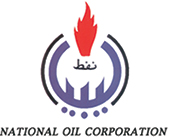By Sami Zaptia.

London, 31 July 2016:
The National Oil Corporation (NOC) has today welcomed the announcement by the Presidency Council of the unconditional reopening of the eastern oil ports that had been blockaded by the Petroleum Facilities Guards led by regional strongman Ibrahim Jadhran.
The NOC said it ”welcomed the announcement by the Presidency Council that the Ras Lanuf, Sidra and Zuetina oil terminals would reopen without conditions”. It said that it was ”announcing a new initiative to end the use of oil blockades as a political tactic”.
The NOC revealed that in a phone call with NOC Chairman Mustafa Sanalla, Musa Koni, the Vice President of the Presidency Council, confirmed that the Presidency Council ”had not paid the Petroleum Facilities Guard to open the ports. The only money paid to the PFG was for overdue salaries”, Vice-President Koni told Sanalla.
“I am pleased the Presidency Council agrees that we cannot reward individuals who hold Libya’s oil hostage,” said Sanalla. “There can be no backroom deals if we are to build trust.”
“I call now on other groups that are using the blockade as a tactic to let Libya’s oil flow freely. In the West of Libya, 400,000 b/d of production is shut in at the Sharara and El-Feel fields”.
”The cost to the country is plain: tens of billions of dollars in lost revenue, and the collapse of our social fabric. But there are costs for the blockaders, too. Shortages of electricity, fuel, food, and medicines in their regions are the direct result of their blockades.”, added Sanalla.
“The PFG in the Central Region eventually understood there is a serious political cost to harming the people of Libya, including at the community level. We need other blockaders also to understand the blockade is not a tactic that benefits anybody”, the NOC chairman explained.
”That is why NOC has started working with local communities across the country to let Libya’s oil flow freely. We want to make the commitment to let Libya’s oil flow freely one of the central foundations of the national political dialogue. Blocking oil flows harms everybody, including the blockaders.”, explained Sanalla.
Sanalla also welcomed the decision by the Presidency Council to release agreed budget money to the NOC to enable it to raise production “The money released by the Presidency will allow us to boost production by over 900,000 b/d by the end of the year 2016,” he said.
“Now we will begin working with the Presidency Council and the Energy Committee of the House or Representatives to restart exports from the ports that were closed and from the fields that supply them”.
”We need to be clear there are still big military, political and legal obstacles that must be resolved”, he warned.
”The NOC will immediately start technical works, and we will mobilise workers as quickly as possible. On top of that, NOC will open discussions with our international oil company partners to indemnify NOC from liability before lifting the force majeure.”, he stressed.
“In the spirit of national unity, we urge the tribes and the municipalities in the oil-producing areas all over Libya to cooperate and join our commitment to let Libya’s oil flow freely. Libyan oil is for all Libyans”.
”I am optimistic we have taken two important steps in the right direction: One, lifting the oil port blockades without conditions; Two, releasing budget money to the NOC. We have a chance now to turn a corner if we let Libya’s oil flow freely”, he concluded.
It will be recalled that Sanalla had reacted strongly to UNSMIL chief Martin Kobler’s meeting with Ibrahim Jadhran who he labelled as a criminal. He had objected to setting a precedent of paying what he considered extortion money to oil blockaders.
Following his meeting with Kobler last Thursday, Jadhran was reported to have said that the terminals would be working again within days.
This assurance seemed a little unlikely since the Sidra and Ras Lanuf tank farms and associated infrastructure have been badly damaged, first in an attack by Misratan-led Libya Dawn forces in February 2015 and then by IS in October last year and January this year.






